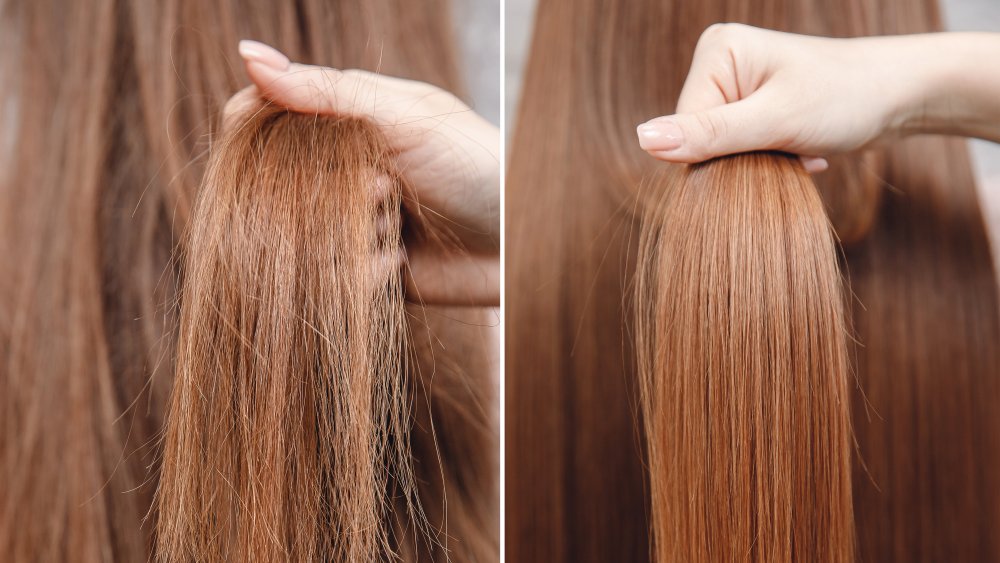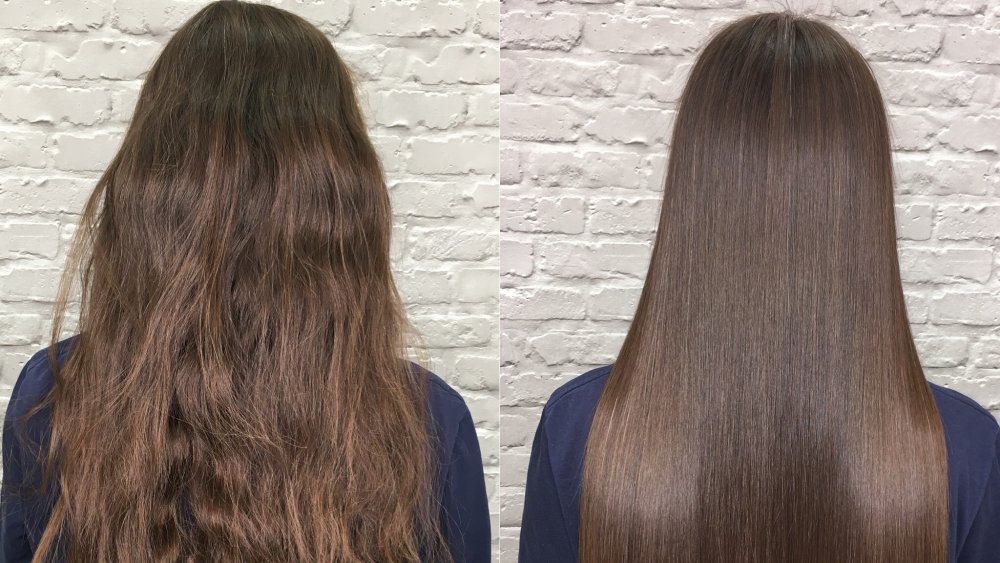Why You Shouldn't Use Keratin To Straighten Your Hair
The temptations of a keratin hair treatment are obvious to those with any amount of frizz to their natural locks: it keeps your tresses smooth and shiny for months, saving precious blowout time and heat-styling damage, not to mention stress in the rainy or humid weather. However, is this pricey procedure really safe? Keratin is a protein that is naturally present in our hair, skin, and nails, so it couldn't possibly be unsafe, could it?
Well, it turns out keratin isn't the only (or even the key) ingredient in these straightening treatments; the real star is formaldehyde (via Healthline). You might know this chemical as one used in embalming, but it's also present in glues, dyes, resins, and textiles, and has been shown to cause cancer with extended exposure (via The American Cancer Society). Unfortunately, this chemical is also what keeps the hair sleek and shiny for months at a time, which is why it is present in the beauty treatment in the first place. According to two New York-based hair stylists, a reputable salon using a treatment with less than 0.002% formaldehyde applied in a space with proper ventilation should be fine (via Byrdie). However, the cancer risk isn't the only concern you should be aware of.
Other possible negative effects of a keratin treatment
Not only can the formaldehyde in keratin treatments increase one's risk of getting blood cancer or leukemia, it can also trigger an allergic reaction (via Healthline). The CDC warns that exposure to formaldehyde can cause skin, throat, lung, and even eye irritation. And, if that wasn't enough of a reason to avoid keratin treatments, they've also been shown to damage the hair itself, since they require a flat iron on a very high heat setting to lock the treatment into place (via Harper's Bazaar). However, it's important to note that the damage from a single keratin treatment will still be less than your hair would go through in six months of daily heat-styling.
So, if you can't live without your keratin treatments, there are ways to reduce their damaging effects. First, you can look into formaldehyde-free versions, which won't do as much to combat naturally curly or wavy hair, but will provide a smoothing effect and dramatically reduce frizz (via Allure). Finally, to ensure you get the results you want and avoid any unnecessary risk, have a consultation with the stylist beforehand. This will allow you ask about the amount of formaldehyde in the treatment, ensure there will be proper ventilation, and learn the haircare rules you'll need to follow in order to maintain the results for as long as possible.

